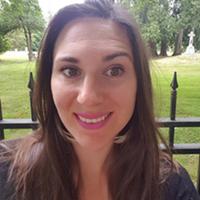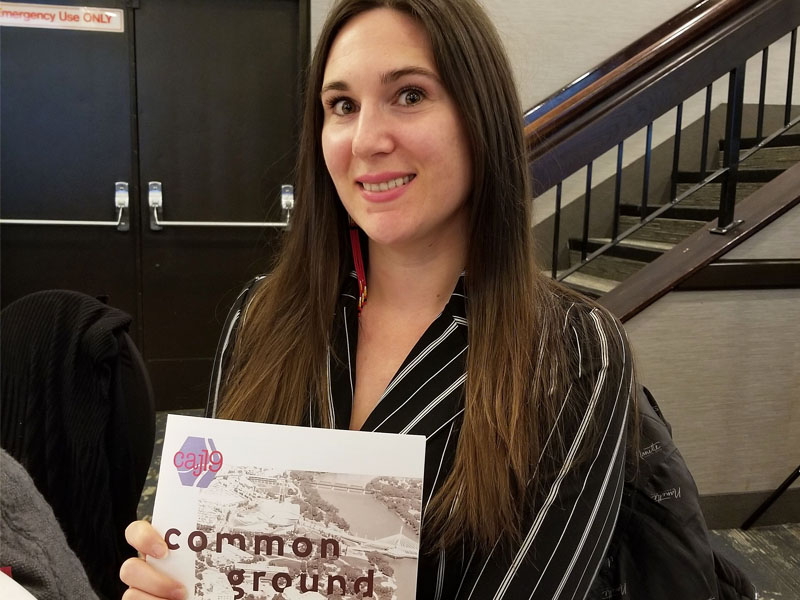I’ve rarely thought about the importance — and fragility of freedom — of the press.
Yet last weekend at the Canadian Association of Journalists’ conference in Winnipeg, the issue was repeatedly raised.
I was there because The Tyee sent me, for which I’m very grateful. I was nominated for a JHR/CAJ Emerging Indigenous Journalist award at the conference for my 2018 work at The Tyee, something my entire family took delight in. I’m sure even my grandmother, now passed on, was beaming with excitement in her grave.
I didn’t walk away with the award, but it was such a true honour to be nominated that I really couldn’t have asked for more. And when any of our Indigenous people are recognized for their talent, we all win. I’m happy for Kyle Edwards of Maclean’s magazine, who was this year’s winner.
But the weekend wasn’t just about the awards. It offered 20 workshops over two days. And a focus on the topic of the freedom to report truth, unfettered by police harassment or the possibility of someone suing because they didn’t like the headline or the angle, offered serious food for thought.
Having worked in the legal system — in a roundabout sort of way as a writer of Gladue reports — I gravitated to sessions that looked at the sticky legal situations that affect journalists. The panel discussions included journalists, lawyers, lawmakers, lawbreakers and law enforcers.
I heard the story of Justin Brake, who reported on a crowd of mostly Indigenous protestors against a hydroelectric project at Muskrat Falls in Labrador. He followed them into an area which had been deemed off-limits by a court-ordered injunction. For that, Brake was charged with mischief and disobeying a court order.
I heard the story of the publisher of Aylmer News in Ontario, John Hueston. Hueston arrived at the scene of an accident to report on it but was soon arrested, along with his son, the paper’s editor, and placed in a police car. He sustained injuries as a result of the police handling, some of which he still suffers from.
And I heard Jeremy Cohn speak about his experience of being wrongly arrested for attending an accident scene in Waterdown, Ont., where a young girl died.
None of these reporters was actually obstructing officers’ duties or, in the case of Brake, participating in the protest. (Which is what saved him — so for all journalists reading, that is a no-no!)
All the cases were eventually resolved. Brake and the Huestons were acquitted. Charges were dropped against Cohn, and the police officer who arrested him now faces charges under Ontario’s Police Services Act.
But eventually is the key word, because it still took considerable time, money and effort for the journalists to be cleared.
Even Jim Acosta from CNN came out to talk Saturday afternoon. He shared the story of losing his press badge after asking U.S. President Donald Trump some less-than Trump-agreeable questions and refusing to give up the microphone before getting an answer. He said he did it because he cared for his country and was concerned about the things he had been seeing lately.
These reporters endured much anguish to provide a service that’s vital to the functioning of a free and democratic society. Yet where were their protections? Imagine a world with no news, no conversation about what was going on. How dark and dangerous would that be? The level of corruption that could grow beneath the surface of a society with no watchdogs is incredibly scary. But the job clearly doesn’t come without scars.
I was so inspired by the voices I heard, who all shared the same goal — the genuine seeking of justice, truth and a better world through writing. And also by those who expressed the core belief that a journalist “should do no harm,” including when interviewing subjects. Being sensitive to the trauma their subjects have experienced is extremely important to them.
I also found out that Vancouver’s own Ricochet Media is facing a $350,000 defamation lawsuit in court later this month — another scary matter. (Ricochet won an award at the conference for an investigation into the far right.)
In 2016, the website published a fake obituary for Journal de Montréal writer Richard Martineau, who then sued them over the article and an accompanying cartoon that depicted a dog urinating on Martineau’s grave. Martineau is known for his columns criticizing Islam and feminists, among other groups.
In an email, Erin Seatter of Ricochet told me why the site is fighting the lawsuit.
“There’s a troubling pattern where free speech advocates fight to be able to say outrageous and harmful things but then seek to shut down those who critique or satirize them,” she wrote. “So, on the one hand, it’s OK to rail against women in hijabs, creating unsafe conditions for Muslim women — that’s free speech, they say. But on the other hand, when someone challenges them and what they’re doing, they sue for defamation and demand vast sums of money. This poses a threat to freedom of expression and to the future of press freedom. It’s why Ricochet Media is going to court this month to fight a lawsuit from Quebecor columnist Richard Martineau.”
This industry is precarious and the work is difficult, and people reading the news have no idea the hoops that journalists often jump through to get the stories. Another session I attended focused on self-care, and the stories of burnout and PTSD were very real. But along with that, the stories of great changes in social structure that were made, just because of one news story, moved me deeply.
And the stories of Indigenous journalists especially, who work hard to seek truths and bring about change that dramatically impacts Indigenous people in Canada moved me so strongly, I’m sure it hit my DNA.
After two days of learning and mingling, I felt that I had become part of a team. And even though this team isn’t always liked for what it does (the hate mail can be more than hateful, apparently), the mission appears greater than the risks.
I’m excited by this, and of course a little terrified. I hope that I can really make a difference with my words. And I am thrilled to join a group of people whose intentions are the same. ![]()
Read more: Rights + Justice
















Tyee Commenting Guidelines
Comments that violate guidelines risk being deleted, and violations may result in a temporary or permanent user ban. Maintain the spirit of good conversation to stay in the discussion.
*Please note The Tyee is not a forum for spreading misinformation about COVID-19, denying its existence or minimizing its risk to public health.
Do:
Do not: